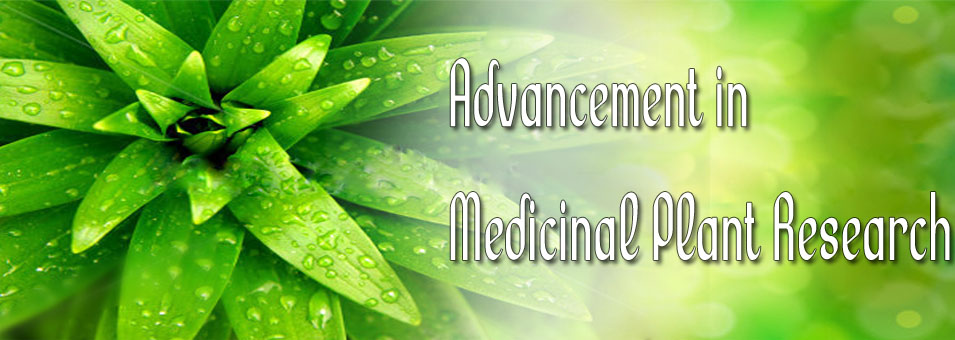Phyto-chemical analysis and protective potential of novel herbal formulation against neurotoxicity induced by Aβ1-42 peptide, inflammation and oxidative stress
Samy Iskandar, Martial Senankpon Gnansounou, Amel Ghazouane, Christophe Sauzet, Maxime Robin, Meryem El Jemli, Lamia Slimani, Fayssal Jhilal, Lydia Abou, Carole Di Giorgio, Samir Ahid, Edwige Dahouenon and Philippe PiccerelleAdvancement in Medicinal Plant Research
Published: March 3 2022
Volume 10, Issue 1
Pages 17-29
Abstract
Alzheimer's disease is a neurodegenerative disorder that causes a progressive deterioration of memory and intellectual capacities. It causes irreversible lesions in the brain and leads to a decline in cognitive functions. New non-drug approaches should, therefore, be explored to slow the progression of the disease. We previously demonstrated the biological activities of a plant composition, designated as AT000. This herbal extract contains a plant heretofore unlisted in the European Pharmacopoeia. In this study, we substituted this plant with camphor leaves and studied the antioxidant, anti-inflammatory and neuroprotective activities in vitro of this new formulation, designated as AT00X. The chemical composition of the AT00X extract using gas chromatography was also evaluated. Results showed significant antioxidant and anti-inflammatory activity with 224010 equivalents of Trolox, an increase in the resistance of control blood to free radical attack up to 54.21% by KRL assay and an anti-inflammatory ratio of 99.13. The extract significantly improves neuronal survival and decreases ROS production at 5 μg/ml. It also stimulates neurite network reconstitution at 10 µg/ml. It can, therefore, be concluded that AT00X extract is an effective therapeutic agent for cognitive deficits caused by Alzheimer's disease.
Keywords: Alzheimer’s disease, medicinal plants, amyloid beta, oxidative stress, inflammation.
Full Text PDFThis article is published under the terms of the Creative Commons Attribution License 4.0

